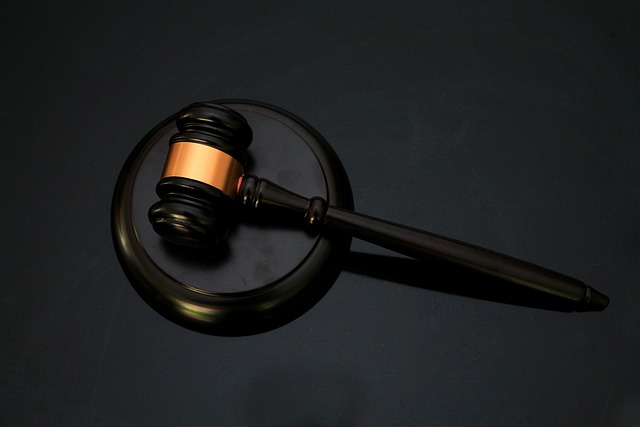Regulatory Fraud Laws protect industry integrity and public trust by defining and penalizing misrepresentation of regulatory requirements. Legal Grounds for Criminal Appeal focus on proving intent, challenging evidence, and witness testimonies in fraud cases. Meticulous record-keeping is crucial for navigating jurisdiction-specific landscapes. Understanding these grounds is vital for white-collar defense, aiming to mitigate charges or secure reduced sentences through appeals. These laws deter false representations, hold individuals accountable, and foster market trust essential for economic growth.
Regulatory fraud laws are designed to protect the integrity of governing bodies and markets by penalizing individuals who manipulate or deceive. This article delves into the intricacies of these laws, focusing on key definitions, legal thresholds for criminal appeals, evidence standards, defense options, and enforcement impact. Understanding these aspects is crucial for both prosecutors aiming to enforce these laws and individuals facing charges, as it underscores the strategic grounds for appeal in light of evolving legal precedents.
- Understanding Regulatory Fraud Laws: Key Definitions
- Legal Thresholds for Criminal Appeal: Grounds for Review
- Evidence and Proof Standards in Fraud Cases
- Strategic Defense Options for Appealing Convictions
- Impact and Enforcement of Regulatory Fraud Legislation
Understanding Regulatory Fraud Laws: Key Definitions
Regulatory Fraud Laws are a critical component of modern legal frameworks, designed to protect the integrity of various industries and maintain public trust. At their core, these laws define and penalize actions that misrepresent or manipulate regulatory requirements. Key definitions within this context include ‘fraud,’ which involves deliberate deception for personal gain, and ‘regulatory compliance,’ emphasizing adherence to set rules and standards. Understanding these terms is essential for both legal professionals and businesses to navigate the complex landscape of high-stakes cases across the country.
The Legal Grounds for Criminal Appeal in such cases are often centered around proving intent and the absence of any regulatory knowledge or willful blindness. General criminal defense strategies might include challenging the evidence, questioning witness testimonies, and exploring any mitigating factors. With the potential for significant penalties, including fines and imprisonment, understanding these laws is paramount, especially as they vary across jurisdictions. This complexity underscores the need for meticulous record-keeping and transparent practices in high-stakes cases where regulatory fraud is suspected.
Legal Thresholds for Criminal Appeal: Grounds for Review
The legal thresholds for criminal appeals, grounded in well-defined legal grounds for criminal appeal, play a pivotal role in ensuring fairness and accuracy throughout all stages of the investigative and enforcement process. These grounds typically encompass issues related to procedural errors, insufficient evidence, and violations of constitutional rights. When a defendant believes their conviction was marred by such injustices, they can initiate an appeal, providing an opportunity to rectify potential mistakes and protect the integrity of the white collar defense.
Key considerations in these appeals often include evaluating the strength of evidence presented during trial, examining legal strategies employed by both prosecution and defense, and assessing whether the defendant received a fair trial as guaranteed under the law. Understanding and navigating these legal grounds require meticulous attention to detail and expertise in criminal law, thereby facilitating a just outcome for all parties involved, especially for his clients.
Evidence and Proof Standards in Fraud Cases
In fraud cases, evidence and proof standards play a pivotal role in distinguishing legitimate business practices from criminal activity. The onus is on prosecutors to establish beyond a reasonable doubt that fraudulent actions were intentionally committed. This involves presenting compelling and admissible evidence that connects the accused to the alleged fraud. Key pieces of evidence include financial records, communication logs, and expert witness testimonies. In complex cases, where corporate and individual clients are involved, understanding the nuances of white collar defense becomes critical.
Legal Grounds for Criminal Appeal often hinge on the sufficiency and reliability of evidence presented. If there’s a reasonable doubt that the evidence was mishandled, improperly obtained, or interpreted incorrectly, it can lead to appeals. For his clients facing fraud charges, having robust and well-documented defenses, along with meticulous record-keeping, can significantly strengthen their case. This ensures that any legal challenge is based on solid grounds, potentially leading to a favorable outcome.
Strategic Defense Options for Appealing Convictions
When facing regulatory fraud charges, individuals have strategic defense options to consider when appealing their convictions. The first step is understanding the legal grounds for criminal appeal. This involves examining whether there were procedural errors during the trial that could have influenced the outcome. Common legal arguments include insufficient evidence, improper admission of evidence, and violations of constitutional rights.
A well-crafted appeal strategy may also involve leveraging support from across the country, where prominent legal experts can provide insights and advocate for the defendant’s case. Additionally, demonstrating a lack of malicious intent or any altruistic efforts, such as philanthropy or political community involvement, could mitigate the charges. By presenting these factors, defendants aim to avoid indictment or, at the very least, secure a reduced sentence if found guilty on appeal.
Impact and Enforcement of Regulatory Fraud Legislation
The impact of Regulatory Fraud Legislation is profound, designed to uphold integrity within industries by deterring false representations and fraudulent activities. These laws carry significant weight, providing legal grounds for criminal appeals and severe penalties for offenders. The enforcement mechanisms have proven effective in holding individuals and organizations accountable for white-collar and economic crimes, ensuring a level playing field for all respective businesses.
Unprecedented track records of successful prosecutions demonstrate the robust nature of these regulatory frameworks. They serve as a stark reminder that fraudsters face stringent consequences, sending a clear message to those considering engaging in fraudulent practices. This approach not only protects consumers and investors but also fosters trust and stability in the market, crucial for sustainable economic growth.
Regulatory fraud laws are a crucial component of ensuring integrity within various industries. By understanding key definitions, evidence standards, and strategic defense options, individuals and businesses can better navigate these legal thresholds. The impact of these regulations, combined with robust enforcement mechanisms, underscores their role in fostering transparency and accountability. In terms of legal grounds for criminal appeal, knowing the appropriate defenses is essential to challenging convictions and promoting a fair judicial process.






